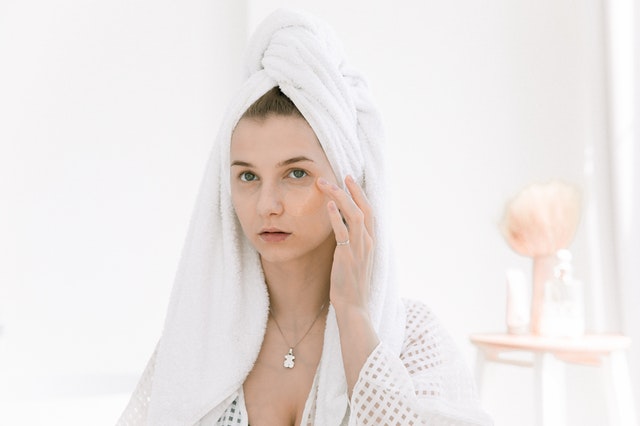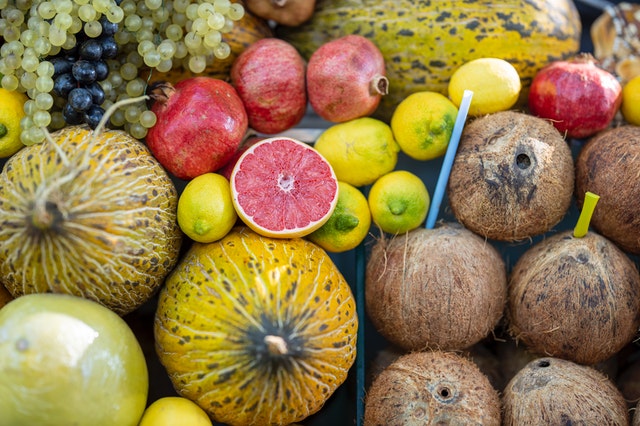Our bodies are covered entirely by skin, which is our largest organ. The skin acts as a protective barrier against heat, light, injury, and infection. The skin is made up of water, protein, lipids, minerals, and chemicals. A special cell called melanocytes produces pigment melanin, which gives skin its color.
Basically, skin consists of three layers: epidermis, dermis, hypodermis.
- Epidermis :
The outer layer of the skin is responsible for creating our skin tone and providing waterproof protection. Here, melanocytes are responsible for producing the pigment melanin.
- Dermis :
Under the epidermis, it contains tough connective tissue, hair follicles, and sweat glands.
- Hypodermis :
Subcutaneous fat and connective tissue are found in this deeper part of the skin.
What the skin does:
- Protect the skin from UV radiation.
- They detect touch, painful sensations, deep pressure, and temperature as sensory organs.
- Maintains moisture levels.
- Offers protection against physical, thermal, and mechanical harm.
- Flexes muscles, allowing movement of the body.
Types of skin :


- Normal skin : The texture is regular, the appearance is clean and soft, and care is not required.
- Sensitive skin : Responses to stimuli are more likely to happen very quickly.
- Dry skin : The cause of this may be due to external factors such as weather, low oxygen levels or immersion in hot water. Bacteria are more likely to grow on dry skin. There may be different signs and symptoms associated with dry skin depending on age, health status, or their cause.
- Oily skin : The appearance is porous, humid, and bright. Generally defined by hormonal or genetic causes, excessive sebaceous gland fat produces this condition. A common occurrence among adolescents and young people under 30 years old, this is more common when acne is present.
- Combinational skin : This skin type exhibits both oily and dry characteristics. For most people, the area with more oil is the T-zone, which covers the forehead, nose, and skin, while the cheeks are normal or dry.
- Scaly skin : Inflammation of the skin due to environmental factors like sun, wind, dryness, and excessive humidity can lead to skin desquamation. Desquamation can also be caused by an allergic reaction, a fungal infection, an immune system disorder or cancer, and by oncological treatments.
- Red spots : Infections, heat, allergies, and immune system disorders are just a few of the dermatological causes and diseases associated with the appearance of red spots or rash.
- Skin moles : A mole is a small dot or spot on the skin that usually appears during childhood and adolescence. They are harmless but should be checked by a dermatologist if they change size, shape, color, or if itches or bleed.
Skin care routine :
Skin integrity is supported, appearance is enhanced, and conditions are alleviated through a range of practices. They include good nutrition, avoiding excessive exposure to the sun and handling emotions well. Medications and radiation therapy involve some kind of skin care.


7 Tips for Skincare Routine :
- Cleanse your face: Rinse your face with water and rub a small amount of gentle cleanser between clean palms every morning and night. Once you’ve removed the cleanser and grime from your face, rinse your hands and massage your face with water. You should use a soft towel to dry your face. Wearing makeup requires double cleansing, first removing makeup with cleansing oil or micellar water. Follow up by cleansing your face with a gentle cleanser.
- Applying toner : Toner should be applied after cleansing the face and before anything else. On your palms or cotton pads, apply a few drops of toner gently to your face. Toner containing ingredients like glycolic acid should be used at night only if it removes dead skin cells.
- Using serum: Use an antioxidant serum in the morning because your skin will be protected from free radicals during the day. Brightening vitamin C serums are great choices, as they protect skin from free radicals during the day. A moisturizing serum containing hyaluronic acid is best used at night to prevent your skin from drying out, especially if you are using anti-aging or acne treatments that can irritate and dry your skin.
- Applying eye cream: Under your eye area, you can apply regular moisturizer; however, since eye creams are typically thinner than face moisturizers, you’ll normally want to layer them under moisturizer.
- Put on moisturizer: Skin is hydrated by moisturizers, which also lock in other layers you’ve applied. When applying a lotion in the morning, pick one that has SPF 30 or greater. The night cream that you use in the evening can be thicker. Skin that is dry needs a cream both in the morning and at night.
- Face oil : Apply face oil after using other skin care products.
- Wear sunscreen to prevent sunburn: Even though sun protection may be the last step in any skin-care regimen, all dermatologists will agree that it is extremely important. Skin cancer and signs of aging can be prevented by protecting your skin from UV rays.
Skin conditions or infections :
- Acne : It consists of blocked oil glands (sebaceous follicles) and hair follicles on the skin, usually triggered by hormonal changes. A person with acne will not only have pimples on their face, but also blackheads, cysts, and nodules. Dermatologists treat acne because if acne is left untreated it can result in scarring and dark spots.
- Atopic dermatitis : This is one of the most common forms of eczema in children. Researchers do not know the cause of atopic dermatitis, but they believe genetics, the environment, and/or the immune system could be involved. This infection is most common on the face (particularly in infants), hands, feet, and in the folds and creases of the skin. The skin is dry, scaly, itchy and thickened when it is constantly scratched.
- Sunburn : This occurs when there is too much exposure to ultraviolet (UV) light from the sun or from sunlamps. The skin becomes red, painful, hot to the touch, and may even peel off. Even with sunscreen protection, it’s difficult to tell how much time is safe in the sun. Skin cancer can be boosted by repeated sunburns, especially as a child. You may also need to stay out of the sun, if you need to reapply sunscreen every two hours.
- Folliculitis: Hair follicles become inflamed when they suffer from folliculitis. Usually, it is caused by staph bacteria or fungus. Folliculitis affects the scalp as well as the skin where the hair grows. In addition to causing itchy bumps on the skin, folliculitis that affects the scalp can cause temporary hair loss. This can be avoided by not scratching vigorously, not exposing your hair or scalp to high heat, or not using styling products by which your scalp becomes healthy and tends to strong hair growth.
Tips to get clear and healthy skin:
- Pimples are caused by trapped oil, serum, and bacteria. Avoid popping your pimples as you may infect the area.
- You should wash your face twice a day and every time you sweat.
- Don’t go outside without sunscreen.
- When washing your face, avoid hot water.
- Gently clean with non-abrasive devices.
- Avoid touching your face regularly.
Skin care secrets :
- Drink plenty of water and stay hydrated.
- You should cleanse your face before bedtime every night.
- Sugar should be consumed in moderation.
- A minimum of 7 hours of sleep is recommended every night.
- Consume healthy foods and avoid junkies.
- Exercise can help you achieve a glowing complexion.
- Avoid chemical products.
Fruits that enhance the glow of the skin:


- Strawberry : There is naturally occurring alpha-hydroxy acid (AHA) in it, as well as salicylic acid, a powerful acne fighter. As a result of the combination of these two compounds, a skin shield is formed.
- Watermelons : As an antioxidant, it contains vitamin A, C, and B1, which together are effective in preventing skin damage and reducing inflammation.
- Apple : Vitamins A and C are abundant in it. Skin will be protected against damage, and appear clean and youthful as a result of the peel and fruit being packed with antioxidants, potassium, magnesium, and dietary fibres.
- Orange : A great source of natural vitamin C, they are one of the best fruits to eat to brighten up a dull complexion. Oranges prevent premature aging.
- Mango : This fruit is said to be the king of all fruits. In addition to tasting great, it also has a lot of benefits for your skin. Flavonoids, polyphenols, beta-carotene, xanthophylls and flavonoids make this fruit an excellent source of vitamins A, C, E, and K. It not only reduces inflammation and hydrates skin, but also improves texture and reduces acne.
- Pomegranate : A moisturizer’s moisturizing agents include antioxidants, vitamins, and minerals that keep your skin hydrated and healthy while protecting it from UV damage and pollution.
Veggies that are good for the skin:


- Cucumber : You can increase your skin’s moisture with them as they are rich in hydration. As well as providing antioxidants, cucumber provides cooling agents that soothe and calm the skin.
- Lemon : Known for its vitamin C content, it is from the citrus family. Your complexion won’t only look better, but your skin will also be protected from harmful environmental agents.
- Carrot : Vitamin A is present in it, and it prevents excessive sebum production. Toxins are flushed out to leave behind a healthy and fresh appearance. They guard our pores from clogging up.
- Cooked tomatoes : As lycopene is proven to reduce wrinkles and loose skin, these are the better choice than raw tomatoes.
- Sweet potatoes : It improves the natural glow of your skin and makes it softer and younger.
- Broccoli : Broccoli is rich in vitamin C and minerals such as copper and zinc, so it can help maintain a healthy complexion. As well as protecting the skin from infection, it also helps prevent acne.
A healthy and glowing skin is very important. It helps the skin to remain in good condition and you shed your skin cells throughout the day. You can prevent acne, treat wrinkles and keep your skin looking its best with an effective routine and treatment.
You should take good care of your skin and health at any age. During 20s and 30s your skin starts to age and therefore it is crucial to take good care of your skin and health to decrease the impacts of aging process
Author Bio :
I am Aradhya Jain, an experienced healthcare provider certified in natural medicine. Natural products are the key to healthy hair, just as nature is the key to a healthy environment. Every time I write an article, I try to share as much of my expertise as possible so that it will be helpful to my readers.




Great blog on healthcare. I have read your blog and you explain everything so properly. Thanks for sharing such information.
Very good blog about skincare… This is very useful. Thanks to you for publishing this blog.
[…] resulting in a more even skin tone. These neem cubes will help you level out your skin tone and make your skin appear brighter and more […]